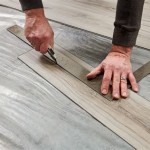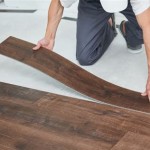Unveiling the Cost of Flooring Installations
Embarking on a flooring installation project can be an exciting endeavor, adding both style and value to your home. However, understanding the costs involved is crucial to ensure smooth planning and budgeting. Here's a comprehensive guide to the essential aspects that determine the cost of flooring installations, empowering you to make informed decisions for your project.
Floor Type
The type of flooring you choose significantly impacts the cost. Hardwood flooring, while aesthetically pleasing, comes with a higher price tag compared to options like laminate, vinyl, or carpet. Stone and tile floors are also premium choices, while engineered wood offers a balance of durability and affordability.
Materials and Quality
The materials used also play a vital role in determining the cost. Solid hardwood, for instance, is more expensive than engineered hardwood, but it offers greater durability and longevity. Premium vinyl planks provide a luxurious look and feel, while budget-friendly options are available for those on a tighter budget. The quality of materials can vary, so researching and comparing different products is essential.
Size and Layout
The size of the area being floored directly influences the cost. Larger rooms require more materials and labor, leading to higher overall expenses. Additionally, the layout of the room can impact the complexity of installation, particularly if intricate cuts or patterns are involved.
Labor Costs
The cost of labor varies depending on the skill level of the installers and the region where you live. Professional installation ensures a high-quality finish but typically comes at a higher price. DIY installation can save on labor costs, but it's crucial to consider your skill level and the complexity of the project before attempting it yourself.
Underlayment and Subfloor
Underlayment and subfloor play a vital role in flooring stability and longevity. Depending on the flooring type and subfloor condition, different types of underlayment and subfloor preparation may be required, adding to the overall installation cost.
Additional Costs
Beyond the core components, additional costs may arise during installation, such as:
- Moldings and transitions
- Removal and disposal of old flooring
- Staircase installation
- Appliances and furniture moving
- Permits and inspections
Estimated Cost Ranges
To give you an approximate idea of the cost ranges for different flooring types, here are some general estimates based on materials, labor, and installation:
- Laminate: $3-$6 per square foot
- Vinyl: $3-$7 per square foot
- Hardwood: $6-$12 per square foot
- Tile: $5-$15 per square foot
- Carpet: $4-$8 per square foot
Factors Influencing Cost Variations
Keep in mind that the cost of flooring installations can vary based on several factors, including:
- Location and availability of materials
- Time of year (seasonal demand)
- Complexity of installation
- Reputation and experience of the installer
- Availability of discounts or promotions
Professional Advice and Estimates
To obtain accurate cost estimates tailored to your specific project, it's highly recommended to consult with flooring professionals. They can assess the scope of work, provide material recommendations, and provide a detailed breakdown of the installation costs, helping you make informed decisions and avoid unexpected expenses.

2024 Laminate Flooring Installation Cost Guide Angi

2024 Laminate Flooring Installation Cost Guide Angi

Unveiling 2024 The Future Of Home Floor Trends Flooring And Design

Unveiling The Best Hardwood Flooring S In Your Vicinity Find Now And Design

Is Installing Hardwood Flooring Worth The Money Gc Pros

Unveiling The Many Advantages Of Laminate Wood Flooring

Maximizing Carpet Efficiency In Round Rock With Quality Underlay

Unveiling 2024 The Freshest Flooring Trends To Watch And Design

Unveiling Spc Flooring A Deep Dive Into Its Pros Cons And Design

Unveiling The Many Advantages Of Laminate Wood Flooring
See Also







